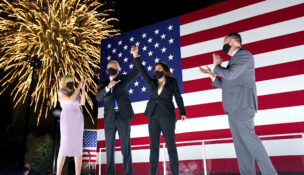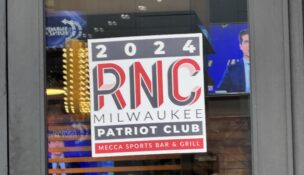‘Public’ can mean 1 person, state Supreme Court rules
By: Michaela Paukner, [email protected]//January 14, 2020//
‘Public’ can mean 1 person, state Supreme Court rules
By: Michaela Paukner, [email protected]//January 14, 2020//
The term “the public” can refer to a single person, a majority of the justices on the Wisconsin Supreme Court ruled last week.
Chief Justice Pat Roggensack and justices Ann Walsh Bradley, Annette Ziegler, Rebecca Bradley and Rebecca Dallet released their majority opinion in Hinrichs and Autovation Limited v. The Dow Chemical Company, a case out of Waukesha County, on Thursday. Justices Dan Kelly and Brian Hagedorn did not participate.
Chris Hinrichs manufactures and installs JeeTops, a type of aftermarket acrylic skylight made for certain types of Jeep Wranglers. The company uses an adhesive made by Dow Chemical Company to install the skylights and ensure they’re watertight.
Hinrichs said the JeeTops started cracking shortly after a Dow agent told him the company was testing a new primer on the skylights. By 2014, Hinrichs said about one-third of his panels using the Dow adhesive had failed. Many dealers and high-profile customers dropped the JeeTops in response to the resulting publicity, and Hinrichs said he’s now not able to sell them, even though he has found a new adhesive.
Hinrichs sued, alleging three counts of misrepresentation and a violation of Wis. Stat. § 100.18(1).4, which concerns fraudulent representation. A circuit court granted Dow’s motion to dismiss the case. Hinrichs appealed, and the appellate court concluded neither of the standard exceptions to the economic-loss doctrine applied. At the same time, the appeals court ruled the circuit court had acted improperly when it dismissed the claim after finding Hinrichs, as an individual, did not fit the statutory definition of “the public.”
The high court discussed whether the economic-loss doctrine barred the misrepresentation claims, if the court of appeals had properly found that the statute claim should survive Dow’s motion to dismiss and if Hinrichs could claim he is is the public for purposes of the statute. The justices upheld the appellate court’s conclusions on all of the questions.
Dow had asked the state Supreme Court to overrule a previously established framework of analysis that decided oral representations made in private conversations counted as public, arguing it was inconsistent with the plain meaning of the term public. The justices denied the request.
“A single representation to a single person is enough to trigger § 100.18(1)’s protections,” Walsh Bradley wrote in the opinion.
Rebecca Bradley dissented with the majority’s interpretation of “the public.” In her opinion, she said the justices in the majority hadn’t applied the plain meaning.
“… the majority’s interpretation of ‘the public’ empties the phrase of any meaning,” Bradley wrote.
She said she would have reversed the appellate court’s decision on the issue, but concurred with the decision to dismiss the misrepresentation claims. Follow @WLJReporter
Legal News
- With GOP convention over, Milwaukee weighs the benefits of hosting political rivals
- Secret Service head resigns as Congress formally investigates
- Milwaukee Police Department issues statement regarding video release policy
- GOP convention sets the stage for the Democratic convention in Chicago, activists and police say
- Survey: Harris has enough delegates to be nominee
- Outside the RNC, small Milwaukee businesses and their regulars tried to salvage a sluggish week
- Biden called to resign immediately after the president announces he won’t seek reelection
- Biden drops out of 2024 presidential race, endorses Harris
- Local PA cops allegedly thought Trump’s would-be assassin was Secret Service
- Biden-Lead Secret Service admits agency denied past requests by Trump’s campaign for tighter security
- Class action filed against Walgreens
- Former Waukesha County Sheriff’s Office lieutenant pleads guilty to smuggling contraband
Case Digests
- Ineffective Assistance of Counsel; Double Jeopardy; Sentencing
- Ineffective Assistance of Counsel; Sexual Assault-Prosecutorial Misconduct
- Contract-Negligence
- Criminal Law; Juvenile Law; Discovery
- Family Law; Child Support; Property Division First paragraph(s)
- Ineffective Assistance of Counsel- Exclusion of Evidence of Witness Bias
- Postconviction Relief-Sentencing-Ineffective Assistance of Counsel
- 14th Amendment – Due Process
- Criminal-Sentencing Guidelines – Enhancement
- Bankruptcy-Tax
- Civil Rights – 14th Amendment-Jury Instructions
- Contract; Foreclosure and Property











